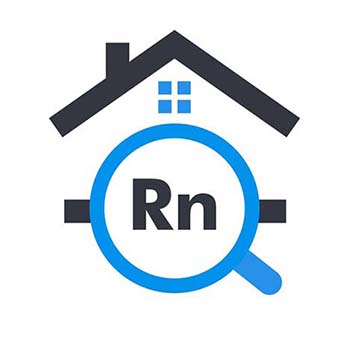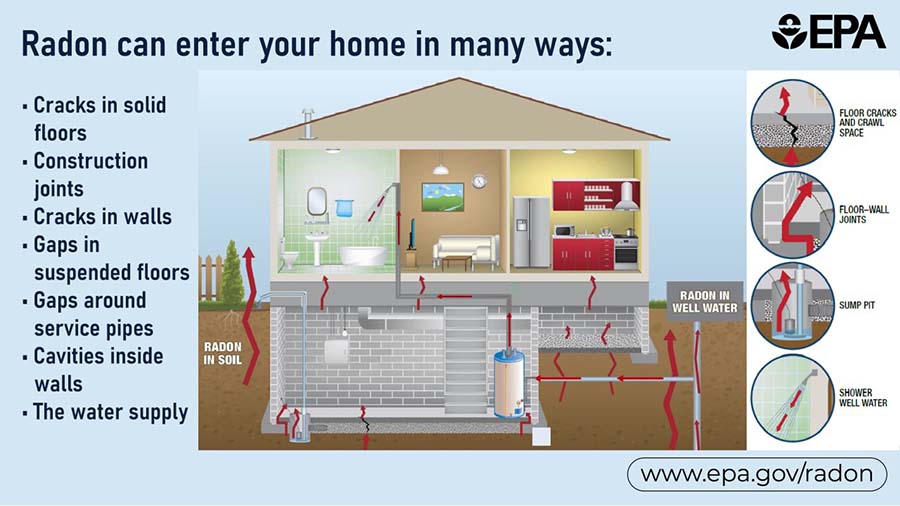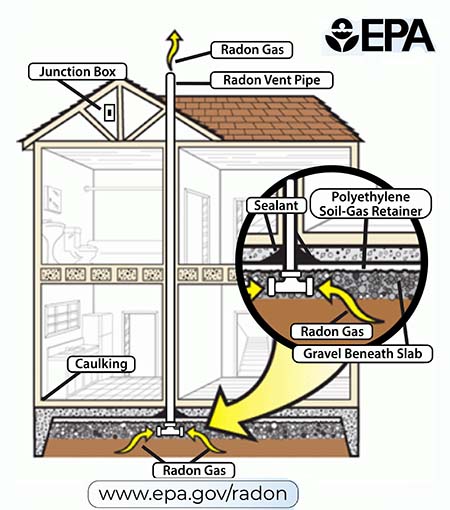Licensed Radon Testing
Why you should have a home tested for radon before buying or selling it

Radon is a colorless, odorless, naturally-occurring, inert radioactive gas. It occurs as part of the decay process of uranium in the soil under and around your home. Sadly, radon exposure has been shown by the US Surgeon General to be the second leading cause of lung cancer. (Click here to learn more about the Surgeon General’s warning.) In fact, he estimated that it is the number one cause of lung cancer among non-smokers.
The EPA has placed DeKalb, Grundy, Kane, Kendall and LaSalle Counties in Radon Zone #1. That means that it’s very likely that a home in our area has high levels of radon. Although DuPage County is in Radon Zone #2, many homes in DuPage county also have high levels of radon. But the only way you can know for sure is with licensed radon testing.
3-D Home Inspection is now licensed to perform residential radon testing.
HOME BUYERS: Find out whether your new home has radon leaks by adding a test to your home inspection.
HOME OWNERS: You should test your home for radon every two years! 3-D Home Inspection can test your home as a stand-alone service.
contact us today to learn how
How do I know if a house has a radon problem?
Since radon is odorless and colorless, you won’t know if it’s present. That’s why licensed, professional radon testing is so important. Whether you’re buying a home or concerned about the home you own, contact us to get tested right away!
IMPORTANT TIP for all homeowners!
Did you know that, even if your home has passed previous radon tests, you may still have radon issues? In fact, Illinois recommends you test your home for radon every two years. Why? Because, the earth around your home expands and contracts seasonally and over time. That movement can cause new cracks and leaks that didn’t exist during the last test.
What do home sellers need to know about radon?
The state of Illinois does not require you to mitigate radon problems in your home before you sell it. However, it does require sellers to disclose the results of any radon test done on the property. There is a radon disclosure form that buyers, sellers and realtors sign at closing.
If you have not yet had your home tested, now may be a good time. You’ll avoid any last-minute surprises. Potential buyers will know up-front whether your house is safe. If a radon test shows high levels, you’ll have time to mitigate the problem before it becomes an issue at closing.
The Illinois Emergency Management Agency strongly recommends all home buyers have a home tested before closing the sale. Sellers may say they have no knowledge of radon in the house. But that could simply mean they have never had it tested. Radon testing is an important part of making sure the home is safe for your family to occupy.
IEMA also recommends that the test be performed by a licensed measurement professional or technician like our Mike Stephans. You can find more information in this fact sheet from IEMA.
This video from the American Lung Association tells you much of what you need to know.
How does radon testing for real estate transactions work?
A licensed professional conducts a short-term radon test in the lowest structural areas of the home. Monitors or detectors collect radon levels over a period of time to determine whether there is a problem. Short-term radon tests generally take two days to perform.
What happens if a home shows high levels of radon?
If a home shows levels of 4 picoCuries per liter (pCi/L) or more, it’s not a reason to call off the sale. But, for your family’s safety, you should invest in professional radon mitigation. This graphic from the EPA shows how radon mitigation works.
The state of Illinois does not dictate who should pay for radon mitigation if levels are dangerous. Buyers and sellers can include these costs as part of their negotiation.
Regardless of who pays for the mitigation measures, you should never move into a home that has high radon levels. It poses a serious health risk to your family. That’s why radon testing is a critical step in your home buying process.



